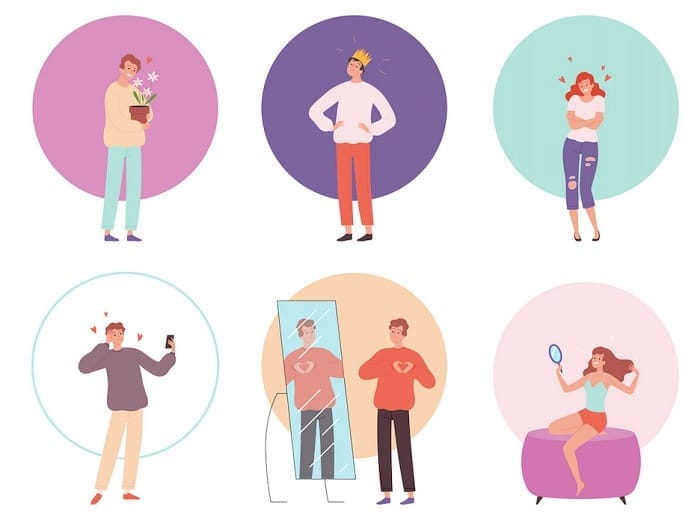
Blog
Entitlement or Grandiosity Schema

There are people who believe that the best things in life are their right and that they deserve them. In order to obtain these things, they exploit others and don’t care about the feelings of those around them. These individuals likely have an entitlement or grandiosity schema.
فهرست عناوین
ToggleDefinition of Entitlement or Grandiosity Schema
In the entitlement schema, a person has a strong desire for power and seeks to attain a special position in life. In pursuing this, they only think of their own desires and view others as objects to serve their needs. People with this schema truly believe that they are entitled to extraordinary things. Their most prominent characteristic is selfishness, which is often very unpleasant for those around them.
Characteristics of the Entitlement Schema
- Individuals with an entitlement schema do not pay attention to others and their needs and always prioritize themselves.
- These individuals believe they are superior to others, and therefore, they consider having special positions and privileges as their right. As a result, they manipulate others to serve their own goals, often excessively flattering them or belittling them to gain more control.
- Those with a narcissistic schema have little empathy for others and are indifferent to the feelings of others. They feel entitled to things from their family, friends, and society. They are ungrateful and have unreasonable expectations, which leads them to behave unfairly towards others.
- Individuals with an entitlement schema, believing that they are different and special from others, tend not to follow rules or laws, and as a result, they may encounter legal or judicial issues more than others.
- They do not practice mutual respect and, due to lacking boundaries in relationships and exploiting their close ones, they are deprived of the opportunity for genuine, selfless affection.

Reasons for the Development of the Entitlement Schema
- Overly Good Parents
- Presence of Other Schemas
Overly Good Parents
It is better for parents to provide a balanced approach in terms of nurturing their child’s needs and desires. They should expose their children to the realities and limitations of life at the appropriate time. However, parents who experienced deprivation in their own childhood often fail to maintain this balance and, by overcompensating, entrap their children in the entitlement schema.
Presence of Other Schemas
Most schemas overlap with each other, and when one schema emerges, related schemas tend to rise in a chain reaction, causing problems. A person may resort to emotional compensation to cope with the defect and shame schema, as well as the emotional deprivation schema. Repeating this coping mechanism can lead to getting trapped in the entitlement schema and may later result in addiction.

Types of Entitlement Schema
The entitlement schema is generally categorized into three groups:
Spoiled Entitlement Schema
A person with this schema is highly dominant and controlling, expecting others to be at their service and empathize with them. If their expectations are not met, they become very upset. Principles and rules hold no meaning for someone with the spoiled entitlement schema. They are impatient and lack endurance, showing no effort to achieve long-term goals.
Dependent Entitlement Schema
In the dependent entitlement schema, the person defines themselves as weak and expects their needs and desires to always be fulfilled by others. They often delegate their tasks to others and feel entitled. Such a person is never appreciative and does not set boundaries for kindness or duty. After their unreasonable expectations are not met, they quickly sulk, damaging their friendships and relationships.
Impulsive Aggressive Entitlement Schema
In this schema, the individual reacts impulsively to events without thinking about the consequences of their behavior. They lack the ability to manage their emotions and actions and become angry very quickly. They might even resort to physical aggression.
The entitlement schema can attack other schemas and create a foundation for the individual to fall into multiple traps. Therefore, recognizing and treating the entitlement schema is extremely important.
Suggested article: Strict Criteria Schema
Entitlement Schema Therapy
For those who have an entitlement or grandiosity schema:
- Do not feel obligated to comply with them.
- Set boundaries so they cannot take advantage of you.
- Do not take responsibility for their beliefs and expectations.
- Allow them to face the realities of life and experience anger and sorrow.
- Show empathy toward them and, if possible, help them overcome this schema.
It is important to note that due to the benefits this schema provides for the individual, they are often unwilling to change their false beliefs.
Additionally, the person with the entitlement schema does not accept that they have a problem or that they need to work on resolving it. As a result, they show significant resistance to accepting and treating the disorder.
An individual with an entitlement schema only seeks therapy when someone important to them has asked or forced them to do so.
The best approach to overcoming this schema and improving is to visit a specialist. The schema therapist, through root cause analysis, replaces the incorrect beliefs and provides appropriate treatment to reduce the destructive effects in the best possible way.
برای مشاوره رایگان و رزرو وقت (یا اگر تماس گرفتید و قادر به پاسخگویی نبودیم) شماره تماس خود را وارد کنید. ما به زودی با شما تماس می گیریم!



